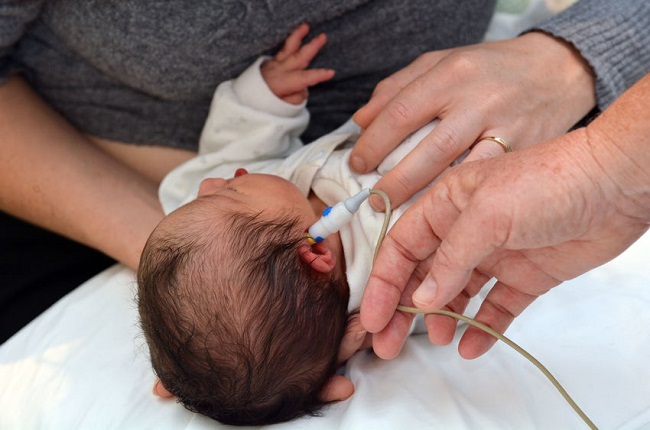VICE Chancellor of the Federal University of Health Sciences, Ila Orangun, Professor Akeem Lasisi, has said the prevalence of hearing loss affecting communication in children is high in Sub-Saharan Africa, second only to South Asia and asked that the Federal Government commence the national hearing screening for all newborns in Nigeria.
Professor Lasisi, in a 2022/2023 inaugural lecture he delivered at the University of Ibadan, entitled ‘Genes, Jinns, Jinx and Peter’s Trial: Untangling the Deafness Knots,’ stated that hearing loss can impair various aspects of a child’s overall development, such as the development of speech and language and, later, the child’s social and emotional relationships.
He declared that most childhood hearing loss is caused by congenital causes and illnesses like meningitis, mumps, polio, otitis media, measles, toxoplasmosis, rubella and Lassa.
“It is apt to classify some deafness as vaccine-preventable and it is estimated that at least two-thirds of cases of childhood-onset hearing loss have a genetic cause,” he said.
Lasisi, an ear, nose and throat expert, declared that the contribution of genetic causes to hearing loss is increasing in developing countries and, as such, genetic screening could also have a role in identifying newborns with hearing loss too mild to be detected with the current screening programmes.
He decried children with hearing loss having no access to hearing aids and stated an urgent need to include its provision in the National Health Insurance Scheme to stem the growth of hearing loss as well as the provision of basic facilities for the diagnosis of hearing loss.
Professor Lasisi added the need for the standardisation and enforcement of a policy that ensures that deaf children are screened and evaluated before onward enrollment in the deaf schools and on early identification and intervention programmes for individuals with hearing loss.
According to Professor Lasisi, there is also a need for Nigeria to invest in newborn and infant hearing screening programmes because of their numerous benefits, including early detection of permanent childhood hearing loss for optimal intervention.
“The government should give serious consideration to the strengthening of the Nigerian national hearing policy, a policy describing how infants and young children with hearing loss can best be identified at an early stage so that they will be given the greatest chance for effective rehabilitation,” the don added.
Professor Lasisi said that the Nigerian national hearing policy, when established and strengthened, will also create strong advocacy and put pressure on policymakers and the government to take into consideration the needs of deaf people in policy formulation.
